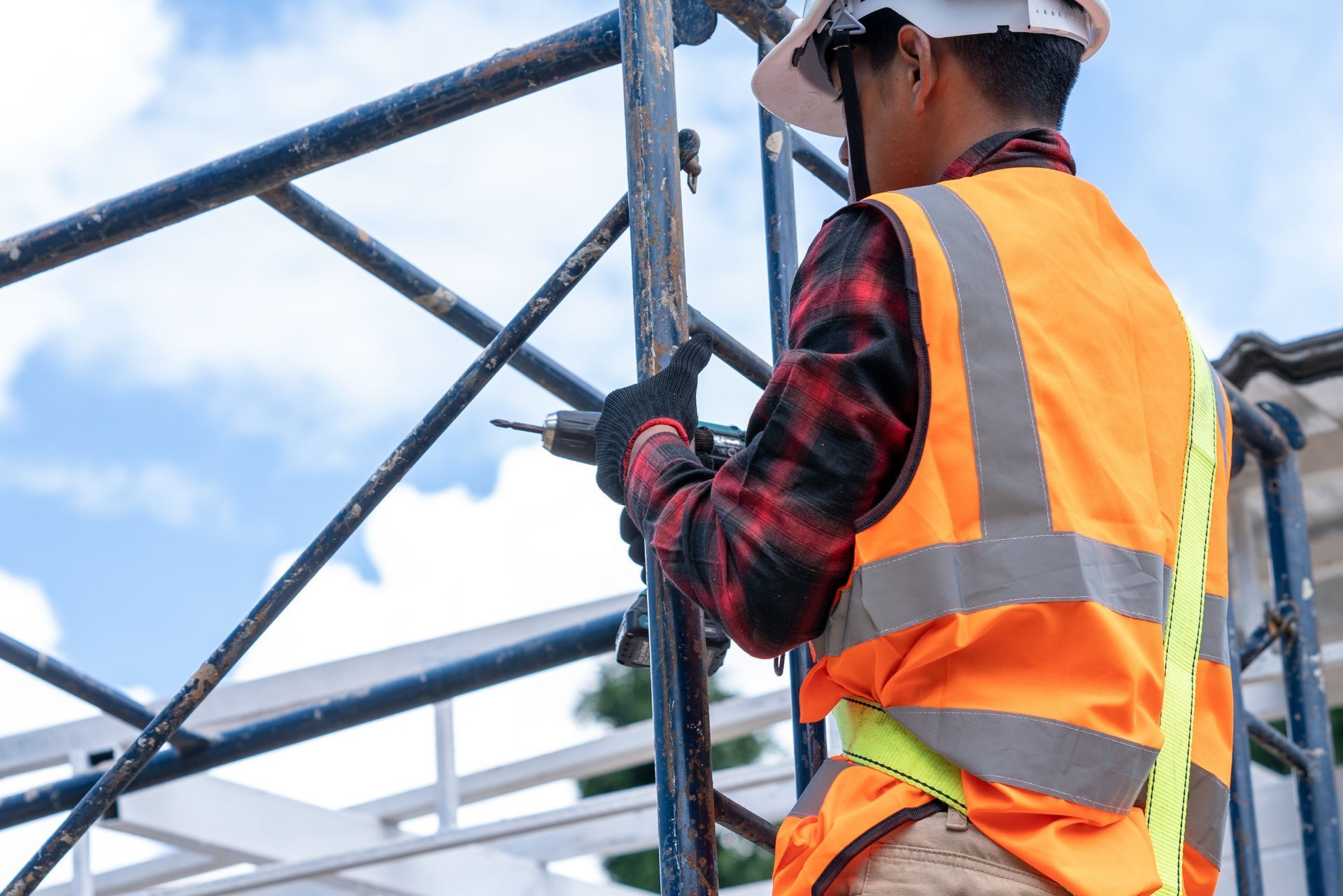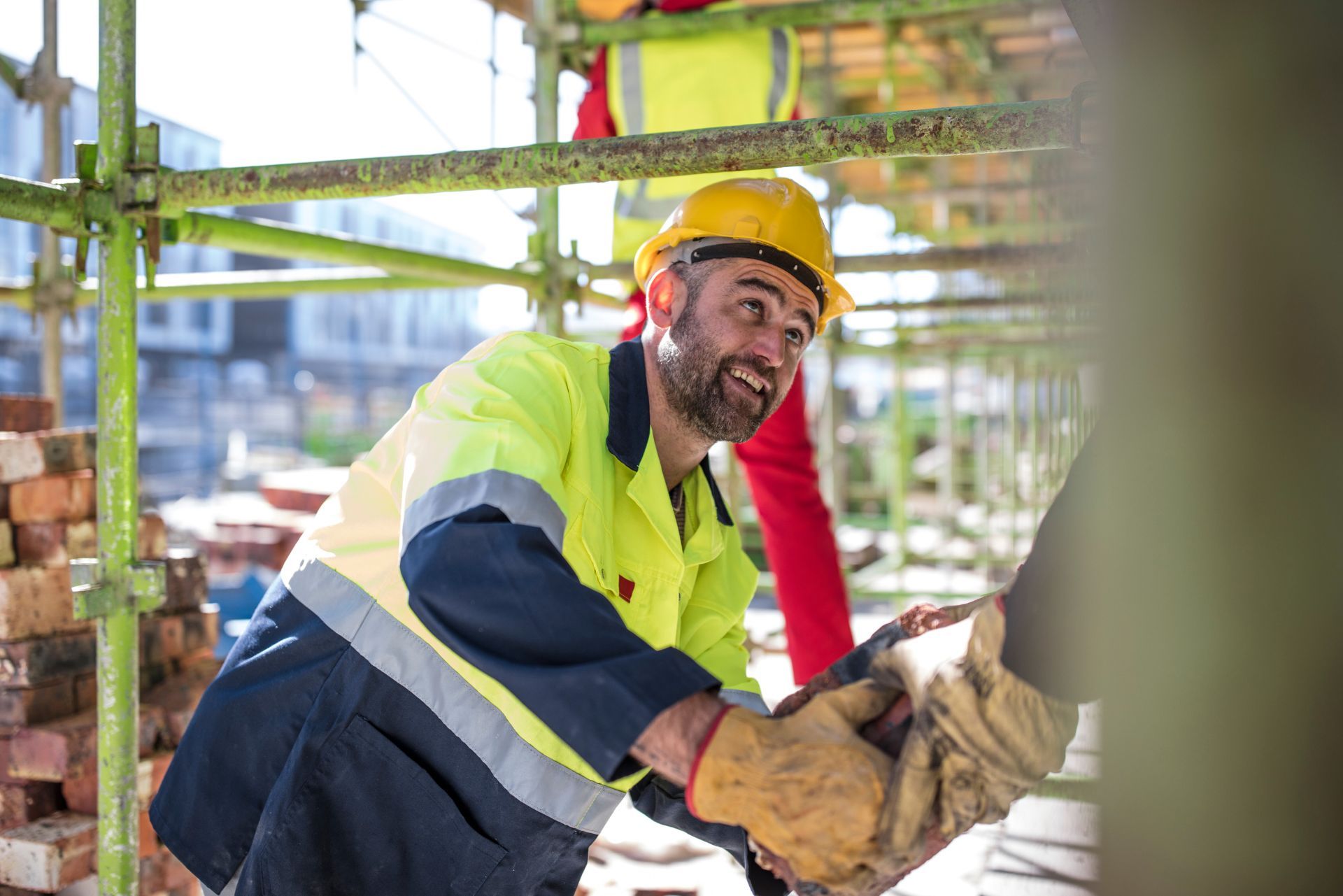Arizona Scaffolding Contractor Insurance
See How We're Different:
or Call Us:(480) 526-3222

Most Common Business Policies
Index
Contact Us
Operating as a scaffolding contractor in Arizona comes with its own set of challenges and responsibilities. One of the most critical aspects of running a successful scaffolding business is ensuring that you have the right insurance coverage. This article aims to provide comprehensive insights into scaffolding contractor insurance in Arizona, including the types of coverage available, the importance of having insurance, and tips for finding the right policy.
Understanding Scaffolding Contractor Insurance
Before delving into the specifics, it is essential to understand what scaffolding contractor insurance entails. This type of insurance is designed to protect scaffolding contractors from various risks associated with their work. Given the nature of the job, which often involves working at heights and handling heavy materials, the potential for accidents is significant. The risks are not only physical but can also include financial liabilities that could jeopardize a contractor's business. Therefore, understanding the nuances of this insurance is crucial for anyone in the scaffolding industry.
In addition to physical safety, scaffolding contractor insurance can also cover legal fees associated with claims made against the contractor. This can be particularly important in a litigious environment where even minor accidents can lead to costly lawsuits. By having the right insurance in place, contractors can focus on their work rather than the potential financial fallout from unforeseen incidents.
Types of Insurance Coverage
There are several types of insurance coverage that scaffolding contractors should consider. Each type serves a unique purpose and addresses different risks. Below are the most common types of coverage:
- General Liability Insurance: This is a foundational coverage that protects against claims of bodily injury or property damage that may occur during the course of work.
- Workers’ Compensation Insurance: Required by law in Arizona, this insurance covers medical expenses and lost wages for employees who are injured on the job.
- Commercial Auto Insurance: If vehicles are used for business purposes, this insurance protects against accidents and damages involving company vehicles.
- Equipment Insurance: This coverage protects against loss or damage to scaffolding equipment and tools, which are often significant investments.
Additionally, scaffolding contractors may also want to consider specialized coverage options such as umbrella insurance, which provides extra liability coverage beyond the limits of existing policies. This can be particularly beneficial in high-risk scenarios where the potential for claims is elevated. Furthermore, environmental liability insurance can be crucial for contractors who may inadvertently cause pollution or environmental damage during their operations, ensuring that they are covered against the costs associated with cleanup and legal ramifications.
Why Insurance is Essential for Scaffolding Contractors
The importance of having adequate insurance coverage cannot be overstated. Here are a few reasons why scaffolding contractors should prioritize insurance:
- Risk Mitigation: Construction sites are inherently risky. insurance helps mitigate the financial impact of accidents, injuries, and property damage.
- Legal Compliance: Many types of insurance, such as workers’ compensation, are legally required in Arizona. Failing to comply can lead to severe penalties.
- Professional Reputation: Having insurance demonstrates professionalism and reliability to clients, which can be a significant factor in winning contracts.
Moreover, having comprehensive insurance coverage can serve as a competitive advantage in the marketplace. Clients often prefer to work with contractors who are fully insured, as it reduces their own risk. This can lead to more contract opportunities and potentially higher profit margins. Additionally, in the event of an incident, a well-insured contractor can respond more effectively, maintaining trust and confidence with clients and stakeholders alike. This proactive approach to risk management not only protects the contractor's business but also fosters a safer working environment for everyone involved.

Key Considerations When Choosing Insurance
Choosing the right insurance policy can be overwhelming, especially with the variety of options available. Here are some key considerations to keep in mind:
Assessing Your Business Needs
Every scaffolding business is unique, and the insurance needs will vary accordingly. It is crucial to assess the specific risks associated with your operations. Consider factors such as:
- The size of your business and the number of employees.
- The types of projects you typically undertake.
- Your past claims history and any potential risks associated with your work.
Additionally, think about the geographical areas where you operate. Different regions may have varying regulations and risk factors, such as weather conditions or local construction codes, which can significantly impact your insurance needs. For instance, if your business frequently works in areas prone to severe weather, you may want to consider additional coverage for weather-related damages. Understanding these nuances will help you tailor your insurance policy to better protect your business against unforeseen events.
Understanding Policy Limits and Deductibles
When reviewing insurance policies, it is essential to understand the limits and deductibles associated with each coverage. Policy limits refer to the maximum amount an insurer will pay for a claim, while deductibles are the amounts you must pay out of pocket before the insurance kicks in. Finding a balance between affordable premiums and adequate coverage is key.
Moreover, it’s important to be aware of how different types of coverage interact with one another. For example, general liability insurance may not cover certain incidents that could arise from specialized scaffolding work. Therefore, you might need to explore additional endorsements or riders that can enhance your policy. This thorough understanding not only ensures that you are adequately protected but also helps you avoid unexpected out-of-pocket expenses that could arise from gaps in coverage.
Working with an Insurance Agent
Engaging with an experienced insurance agent can simplify the process of selecting the right coverage. An agent can provide valuable insights into the specific needs of scaffolding contractors and help navigate the complexities of different policies. They can also assist in comparing quotes from various insurers to ensure you get the best deal.
Furthermore, a knowledgeable agent can help you stay updated on industry trends and changes in regulations that may affect your insurance requirements. They can offer guidance on risk management practices that can potentially lower your premiums over time. By establishing a strong relationship with your insurance agent, you can create a proactive approach to managing your coverage, ensuring that your business remains protected as it grows and evolves.
Common Claims in the Scaffolding Industry
Understanding the types of claims that commonly arise in the scaffolding industry can help contractors prepare and mitigate risks. Here are some of the most frequent claims:
Bodily Injury Claims
Accidents involving falls or injuries due to scaffolding equipment are among the most common claims. These incidents can lead to significant medical expenses and lost wages for injured workers. Having adequate general liability and workers’ compensation coverage is essential to address these claims. Additionally, implementing rigorous safety training programs and regular equipment inspections can significantly reduce the likelihood of such incidents. Ensuring that all employees are well-versed in safety protocols not only protects them but also fosters a culture of safety within the organization, which can be beneficial in the long run.
Property Damage Claims
Scaffolding work often takes place in urban environments where property damage can occur. This could involve damage to a client’s property or surrounding structures. General liability insurance typically covers these types of claims, but it is crucial to ensure that the policy limits are sufficient to cover potential damages. Moreover, thorough pre-project assessments can help identify potential risks to nearby properties, allowing contractors to take proactive measures to mitigate those risks. Establishing clear communication with property owners and stakeholders about the scaffolding process can also help manage expectations and reduce the chances of disputes arising from property damage claims.
Equipment Theft or Damage
Scaffolding equipment is valuable and can be a target for theft or vandalism. Equipment insurance can help contractors recover losses associated with stolen or damaged tools and machinery. This type of coverage is particularly important for contractors who own expensive scaffolding systems. Furthermore, investing in security measures such as GPS tracking devices, secure storage facilities, and surveillance cameras can deter theft and provide peace of mind. Regularly updating inventory and conducting audits can also help contractors keep track of their equipment and quickly identify any missing items, ensuring that they can act swiftly in the event of theft or damage.
Cost of Scaffolding Contractor Insurance in Arizona
The cost of insurance for scaffolding contractors can vary significantly based on several factors. Understanding these factors can help contractors budget effectively for their insurance needs.
Factors Affecting Insurance Premiums
Several key factors influence the cost of insurance premiums for scaffolding contractors:
- Business Size: Larger businesses with more employees and higher revenue may face higher premiums due to increased risk exposure.
- Claims History: A history of frequent claims can lead to higher premiums, as insurers may view the business as a higher risk.
- Coverage Limits: Higher coverage limits typically result in higher premiums. It is essential to balance adequate coverage with affordability.
- Type of Work: The nature of the projects undertaken can also impact premiums. High-risk projects may lead to higher costs.
Average Premiums for Scaffolding Contractors
While it is challenging to provide a one-size-fits-all figure, scaffolding contractors in Arizona can expect to pay anywhere from $1,000 to $3,000 annually for general liability insurance. Workers’ compensation insurance costs can vary widely based on payroll and the number of employees, but it is often a significant part of the overall insurance budget.
In addition to the basic premiums, scaffolding contractors should also consider the potential costs associated with additional coverage options. For instance, equipment insurance can protect against theft or damage to scaffolding materials, which is particularly important given the high value of these assets. Furthermore, contractors may want to explore professional liability insurance, which can cover claims related to negligence or failure to deliver services as promised. This type of coverage is especially pertinent in a field where safety and precision are paramount.
Moreover, the geographical location within Arizona can also play a role in determining insurance costs. Urban areas with higher construction activity may face different risk assessments compared to rural locations. Additionally, local regulations and building codes can influence the type of coverage required, making it crucial for contractors to stay informed about regional differences. Engaging with a knowledgeable insurance broker who specializes in construction-related policies can provide valuable insights and help contractors navigate the complexities of their insurance needs.

Finding the Right Insurance Provider
Choosing the right insurance provider is just as important as selecting the right coverage. Here are some tips to help scaffolding contractors find a reliable insurer:
Researching Insurance Companies
Start by researching insurance companies that specialize in coverage for construction and scaffolding businesses. Look for providers with a solid reputation and positive customer reviews. Online resources and industry associations can be valuable for finding reputable insurers. Additionally, consider reaching out to fellow contractors or industry peers for personal recommendations. Their firsthand experiences can often lead you to trustworthy providers that may not be as prominently advertised.
Comparing Quotes
Once you have identified potential insurance providers, obtain quotes from multiple companies. This will allow you to compare coverage options, premiums, and policy terms. Be sure to ask about any discounts that may apply, such as bundling multiple policies. It’s also wise to inquire about the specifics of each policy, including exclusions and limitations, as these can significantly affect your coverage. Understanding the fine print can help you avoid unexpected costs or gaps in protection when you need it most.
Reading Customer Reviews and Testimonials
Customer reviews and testimonials can provide insights into the experiences of other scaffolding contractors with a particular insurance provider. Look for feedback on claims handling, customer service, and overall satisfaction. This information can be invaluable in making an informed decision. Furthermore, consider checking third-party review sites, as these can offer a broader perspective beyond what is available on the insurer’s own website. Pay attention to patterns in the reviews; consistent praise or criticism can reveal much about the insurer's reliability and responsiveness.
Evaluating Financial Stability
In addition to customer feedback, evaluating the financial stability of an insurance provider is crucial. You can access ratings from independent agencies such as A.M. Best or Standard & Poor’s, which assess the financial health of insurance companies. A strong financial rating indicates that the insurer is likely to meet its obligations, especially during times of high claims. This is particularly important in the construction industry, where accidents can lead to significant claims that require a provider to have robust financial backing.
Understanding Policy Customization
Another important factor to consider is the ability to customize your insurance policy. Scaffolding contractors often face unique risks that may not be adequately covered by standard policies. Look for insurers that offer flexible options to tailor coverage to your specific needs, such as adding endorsements for specialized equipment or including coverage for subcontractors. This customization can ensure that you are fully protected against the specific risks associated with your projects, providing peace of mind as you focus on your work.
Conclusion
In conclusion, scaffolding contractor insurance is a vital component of running a successful business in Arizona. With the right coverage, contractors can protect themselves from the various risks associated with their work, ensuring financial stability and peace of mind. By understanding the types of insurance available, assessing specific business needs, and working with knowledgeable insurance agents, scaffolding contractors can secure the coverage they need to thrive in a competitive industry.
As the construction landscape continues to evolve, staying informed about insurance options and requirements is essential. By prioritizing insurance, scaffolding contractors can focus on what they do best—providing safe and reliable scaffolding solutions for their clients.
